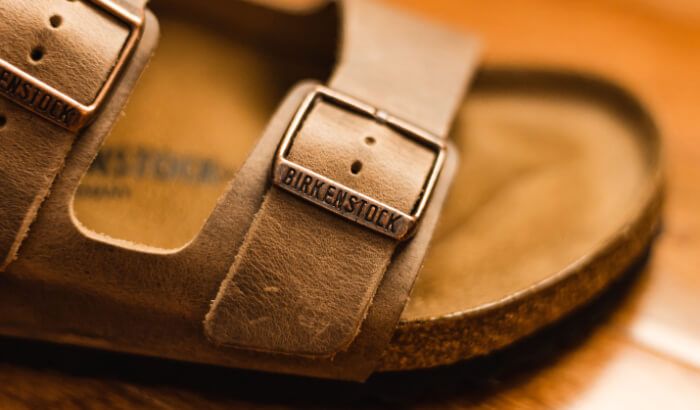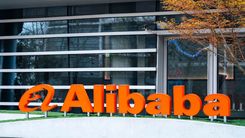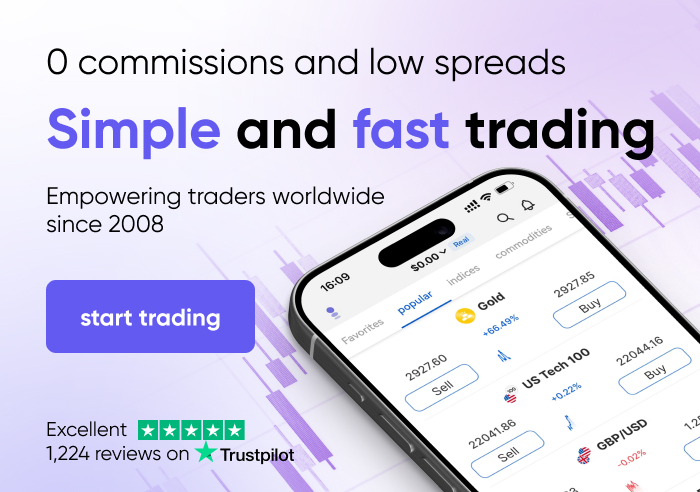
Monday Oct 9 2023 07:14

8 min

German sandal manufacturer Birkenstock is gearing up for an initial public offering (IPO) later this month, which is poised to value the company at over $9 billion. In an updated prospectus, Birkenstock disclosed plans to sell shares at a price range of $44 to $49 per share, potentially raising up to $1.6 billion for the company.
At the upper end of this price range, Birkenstock's initial market capitalization would reach $9.2 billion based on outstanding shares after the offering or $9.9 billion on a fully diluted basis. LVMH-backed L Catterton, Birkenstock’s private equity owner, is set to list the company on the New York Stock Exchange (NYSE) next week under the ticker symbol BIRK.
According to the Financial Times, roughly one-third of the IPO proceeds will be allocated to Birkenstock to repay debt, while the remainder will go to L Catterton. The IPO has attracted interest from anchor investors, including Financière Agache, the family holding company of LVMH (LVMH) CEO Bernard Arnault, the Norwegian sovereign wealth fund, and Durable Capital Partners.
Alexandre Arnault, the son of Bernard Arnault, is expected to join Birkenstock's board of directors post-IPO.
Bankers have been anticipating a successful deal from a renowned consumer brand like Birkenstock to potentially invigorate the market following a series of tech listings in September — UK-based chip designer Arm Holdings, San Francisco-based grocery delivery firm Instacart, and marketing automation company Klaviyo all floated their shares in the previous month.
“It will be important as it’s a different sector, so it gives a broader set of data [to encourage other potential IPO candidates],” one senior IPO banker told the FT.
Notably, all three firms — Arm, Instacart and Klaviyo — priced their stock offerings at or above their intended ranges. Their stocks “popped” after their respective IPOs, but trading was mixed in the weeks that followed.
In total, US IPOs have raised $17.4 billion this year, marking an increase of over 140 % compared to the same period last year.
Сalculate your hypothetical P/L (aggregated cost and charges) if you had opened a trade today.
Market

Instrument


Account Type
Direction
Quantity
Amount must be equal or higher than
Amount should be less than
Amount should be a multiple of the minimum lots increment
USD
EUR
GBP
CAD
AUD
CHF
ZAR
MXN
JPY
Value
Commission
Spread
Leverage
Conversion Fee
Required Margin
Overnight Swaps
Past performance is not a reliable indicator of future results.
All positions on instruments denominated in a currency that is different from your account currency, will be subject to a conversion fee at the position exit as well.
Established almost 250 years ago, Birkenstock developed an ergonomically designed insole for enhanced comfort. In the 1970s, the company’s contemporary cork-lined sandals gained widespread popularity, captivating shoppers across regions like the U.S. Southwest and Europe with their comfortable style.
The company, which traces its roots back to 1774, is a sixth-generation family-owned business founded by Johann Adam Birkenstock. The majority of its products are crafted in manufacturing facilities in various regions across Germany, including Rhineland-Palatinate, North Rhine-Westphalia, Hesse, and Saxony.
Over the years, Birkenstock, which typically focuses on comfort rather than fashion, has evolved into a prestigious brand, collaborating with renowned luxury names such as Dior, Manolo Blahnik, and Valentino. Labels like Celine and Givenchy have introduced their versions of Birkenstock-inspired footwear.
The company has been in the eyes of fashion aficionados in recent weeks after one of its products was featured in the blockbuster hit “Barbie”, where Margot Robbie was seen donning a pair of pink Birkenstocks. Fashion app Lyst reported a 110% surge in searches for Birkenstock Arizonas after the shoe's release — the film featuring the shoes, however, didn't premiere until July.
The company’s filing with the Securities and Exchange Commission (SEC) on Tuesday showed that more than half, or 54%, of the company's customer base resides in the Americas, with Europe accounting for 36%. Although women constitute the majority, comprising 72% of Birkenstock's customer demographics, the appeal of the company’s footwear extends across different generations. Millennials represent the largest share of sales at 31%, followed by baby boomers at 30%, Gen X at 27%, and Gen Z at 12%.
In 2021, L Catterton, an investment company formed through a partnership of Catterton, LVMH, and Groupe Arnault, acquired a majority stake in Birkenstock. The stake means L Catterton will maintain the majority of voting rights in the firm — specifically 82.8% — once the deal is completed. This means that individual shareholders will have limited influence over the company's management and decisions.
Birkenstock remains a profitable company, reporting earnings of 103.1 million euros ($113.2 million) in the first nine months of the current year — a decrease from 129.1 million euros in the same period in 2022. Revenue, however, has risen to 1.24 billion euros from the 727.9 million euros it made in 2020 fiscal year — a 70% increase.
Going back further, Birkenstock’s revenue grew at a 20% compound annual growth rate (CAGR) from fiscal 2014 to fiscal 2022. In the U.S., this stat was even higher, at 32% CAGR.
Birkenstock's upcoming sales figures are expected to be even more robust, according to a comment from Jason Goldberg, Chief Commerce Strategy Officer at Publicis Groupe, shared with industry publication Modern Retail.
“Any bump they get from the [Barbie] movie is going to be incremental to all the numbers in their current filing, and the numbers in their current filing are pretty solid,” Goldberg said.
If Birkenstock’s valuation is sky-high, that might be a red flag, as pointed out in a report by David Trainer, the CEO of the independent equity research firm New Constructs. The company employs machine learning and natural-language processing to analyze corporate filings and model economic earnings — even though its research has faced some skepticism.
Birkenstock intends to offer 32.3 million shares at a price range of $44 to $49 each. At the midpoint of this price range, the company would carry a valuation of $8.7 billion, which surpasses the market capitalization of comparable peers like Skechers, Crocs, and Steve Madden.
“Even more shockingly, the only footwear companies with a larger market cap are Nike (NKE) and Deckers Outdoor. While Birkenstock is profitable, we think it is fair to say that the $8.7 billion valuation mark is too high, especially for a company that was valued at just $4.3 billion in early 2021. Not a whole lot has changed since then,” the report said.
According to Trainer’s estimates, Birkenstock would need to generate more than $3.8 billion in annual revenue to justify that valuation — more than three times the $1.24 billion chalked up for all of 2022, according to the company’s SEC filing.
“We don’t see this happening anytime soon, if ever,” the analyst added.
Trainer’s overall verdict on Birkenstock shares was highly negative:
“We don’t doubt that Birkenstock has strong brand equity and produces stylish sandals, but there is really no reason for this company to be public. We do not think investors should expect to make any money by buying this IPO.”
Other analysts have yet to issue forecasts and Birkenstock share price predictions.
When considering shares for trading and price predictions, remember that trading CFDs involves a significant degree of risk and could result in capital loss.
Past performance is not indicative of any future results. This information is provided for informative purposes only and should not be construed to be investment advice.
Asset List
View Full ListLatest
View all
Thursday, 20 February 2025

8 min

Thursday, 20 February 2025

5 min

Thursday, 20 February 2025

2 min



